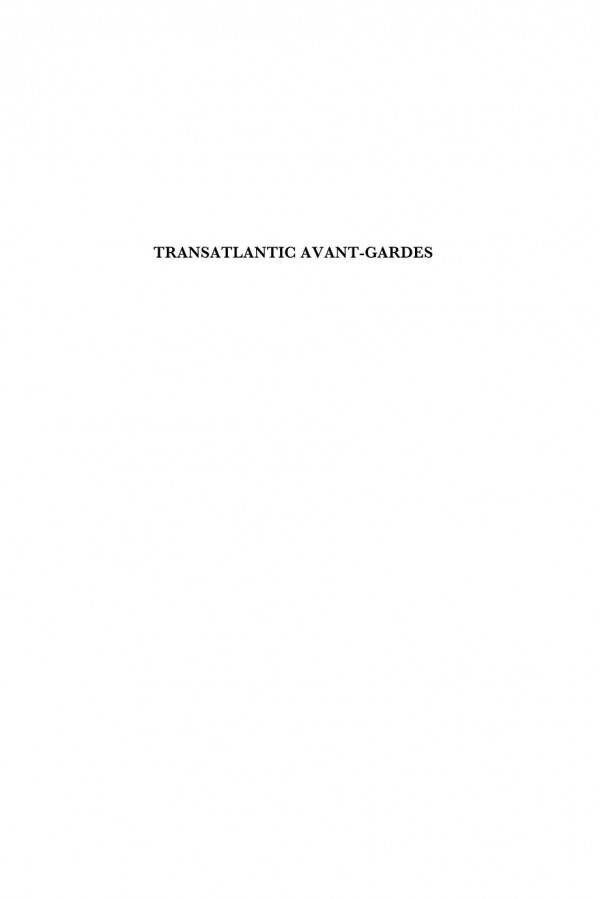

Most ebook files are in PDF format, so you can easily read them using various software such as Foxit Reader or directly on the Google Chrome browser.
Some ebook files are released by publishers in other formats such as .awz, .mobi, .epub, .fb2, etc. You may need to install specific software to read these formats on mobile/PC, such as Calibre.
Please read the tutorial at this link: https://ebookbell.com/faq
We offer FREE conversion to the popular formats you request; however, this may take some time. Therefore, right after payment, please email us, and we will try to provide the service as quickly as possible.
For some exceptional file formats or broken links (if any), please refrain from opening any disputes. Instead, email us first, and we will try to assist within a maximum of 6 hours.
EbookBell Team

5.0
60 reviewsProvides an alternative account of the modernist transatlantic
Transatlantic Avant-Gardes offers a revisionary account of the evolution of twentieth-century modernism. Complimenting recent studies of modernist expatriates, Eric White explores new points of contact between European and American avant-gardes to place ‘located’ figures such as William Carlos Williams, Marianne Moore, Wallace Stevens, Jean Toomer, and Alfred Kreymborg back into the 'global design' of literary modernism. Focusing on artist-run 'little magazines' (including Others, Contact, The Little Review, Blast, The Dial, Fire!!, and Pagany) and selected fine press publications and mainstream periodicals, White also reconsiders the boundaries that traditionally divide modernist literature into 'exile' and 'localist', or 'regionalist' and 'cosmopolitan', factions. Thus, the book proposes a version of localist modernism that prioritises issues of geographic and textual 'location' to deliver a 'networked' approach to American modernism in the transatlantic context. Combining literary-historical, textual, and cultural criticism, Transatlantic Avant-Gardes provides a new reading of the specialised literary networks that interrogated the relationship between geographic place, textual space and national identity in the modernist transatlantic.